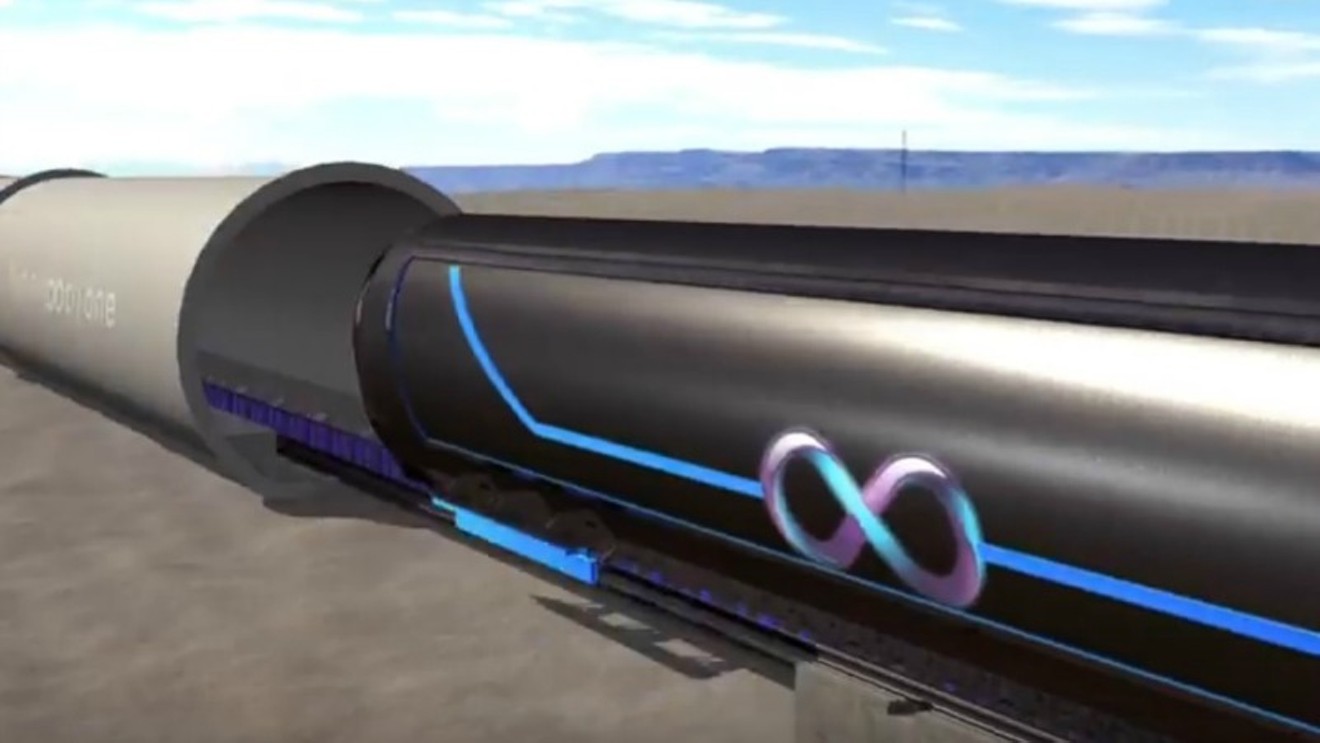The folks at the Colorado Department of Transportation hope so, and while the concept sounds like science fiction (and critics consider it a potentially dangerous boondoggle), they believe it's on the verge of becoming fact. If CDOT's proposal is accepted by the Los Angeles-based company behind the technology — and it's among 35 semi-finalists, plucked from an original stack of 2,600 submissions — spokeswoman Amy Ford says Hyperloop One construction between Denver International Airport and Greeley could get under way before the decade is out.
"From a funding perspective, if we're selected, we could be under construction in the next year to year and a half," Ford says.
The time frame for the first Hyperloop One — the signature product of a firm affiliated with billionaire Elon Musk, of Tesla Motors and SolarCity fame — is even shorter. According to Ford, construction is already under way on the first system, which will link Dubai and Abu Dhabi. The 99-mile distance between the two locations will be covered in twelve minutes, Hyperloop One estimates.
No, it wouldn't be free. But according to the Hyperloop website, the costs wouldn't put it beyond the means of the average person. It states: "Hyperloop is a new way to move people and things at airline speeds for the price of a bus ticket. It's on-demand, energy-efficient and safe. Think: broadband for transportation."
How would the damn thing work? "We use a custom electric motor to accelerate and decelerate a levitated pod through a low-pressure tube," the site explains. "The vehicle will glide silently for miles with no turbulence."
The Hyperloop folks don't exactly shy away from hyperbole, declaring, "The world is ready for a new mode of transportation that will change the way we live. We're in the business of selling time, the most precious resource there is. When cities become metro stops, regions will flourish."
But not everyone is on board, with Dr. Phil Mason, a former Cornell University chemist, emerging as one of the most prominent Hyperloop One doubters. An article in The Daily Caller, a conservative website co-founded by Fox News personality Tucker Carlson, divides up Mason's objections to Hyperloop One (which are further explicated in a video on view below) into five main categories:
1: If Anything Goes Wrong, Everybody DiesFord offers no such concerns. "We obviously want to explore a technology that has the incredibly exciting promise of being a brand-new infrastructure," she says.
2: It's Probably Physically Impossible To Build The Hyperloop
3: Heat Would Destroy The Hyperloop’s Track
4: Hyperloop Would Be Incredibly Vulnerable To Terrorism
5: The Hyperloop Will Probably Cost WAY More Than Its Formal Estimates
As for the route, many Coloradans would argue that the Interstate 70 corridor through the mountains presents a more immediate need than does I-25 north of Denver. But Ford says the latter path offers "the easiest and most productive build. Our focus is going straight to commerce, and from a logistics perspective, connecting into the airport as a starting point was a good place to go."
In addition, she continues, "there's huge congestion along the northern front range and the expectation of continued growth. And as you look at building in that direction and connecting up through Greeley, we get to take advantage of our green space out there," as opposed to having to negotiate the rises, falls, twists and turns of the mountain corridor.
If the initial route proves successful, Ford notes, "we would look at connecting up in Fort Collins. But I-70 is certainly part of our discussions," since the preliminary environmental impact statement for transportation expansion through the corridor would allow for what she calls "an advanced guideway system. That's code for 'train,' but something like Hyperloop could fit within that broader construct. So we're not going to tackle that one yet, but there's certainly that possibility."
CDOT should learn by late spring if its proposal was picked, and if so, Ford hopes the process would begin to move as swiftly as a Hyperloop pod soon thereafter.
"We want to explore potential technologies and how they can transform transportation, and something like Hyperloop is on the leading edge of that," she says. "We think we have the program and the organizational nimbleness to be forward-thinking when it comes to technologies like this, and we hope that will help us — because this has the capacity to create an entirely new infrastructure. It's transformative."
Look below to get two very different takes on Hyperloop One — a video from the company, followed by the aforementioned critique of the concept from Dr. Phil Mason.














